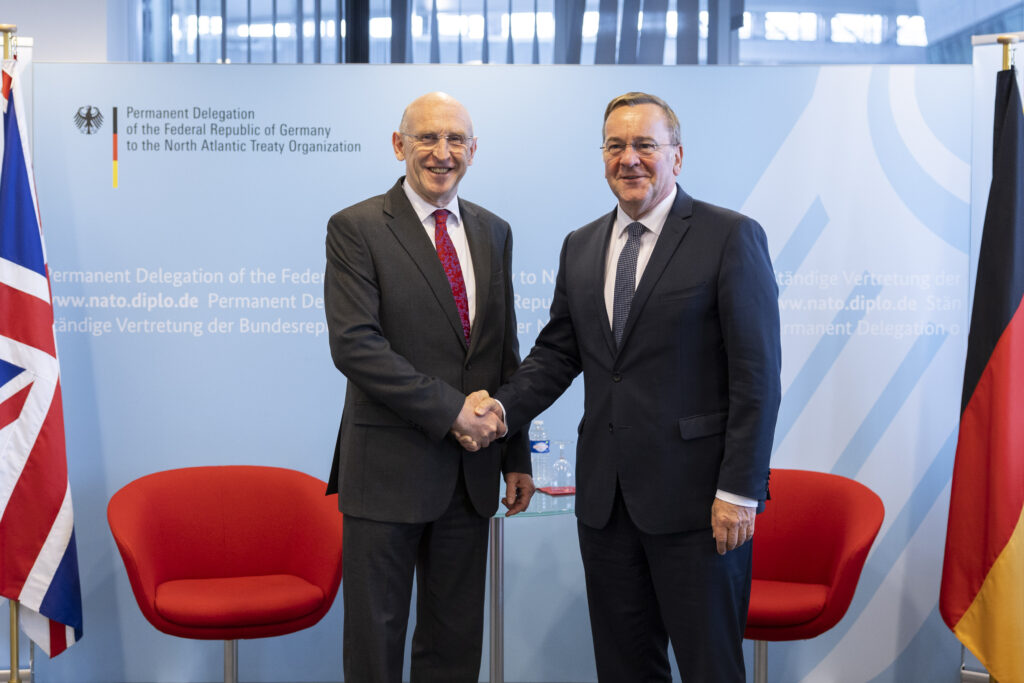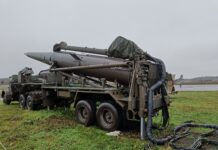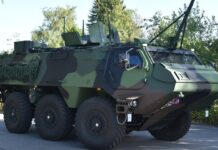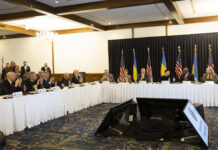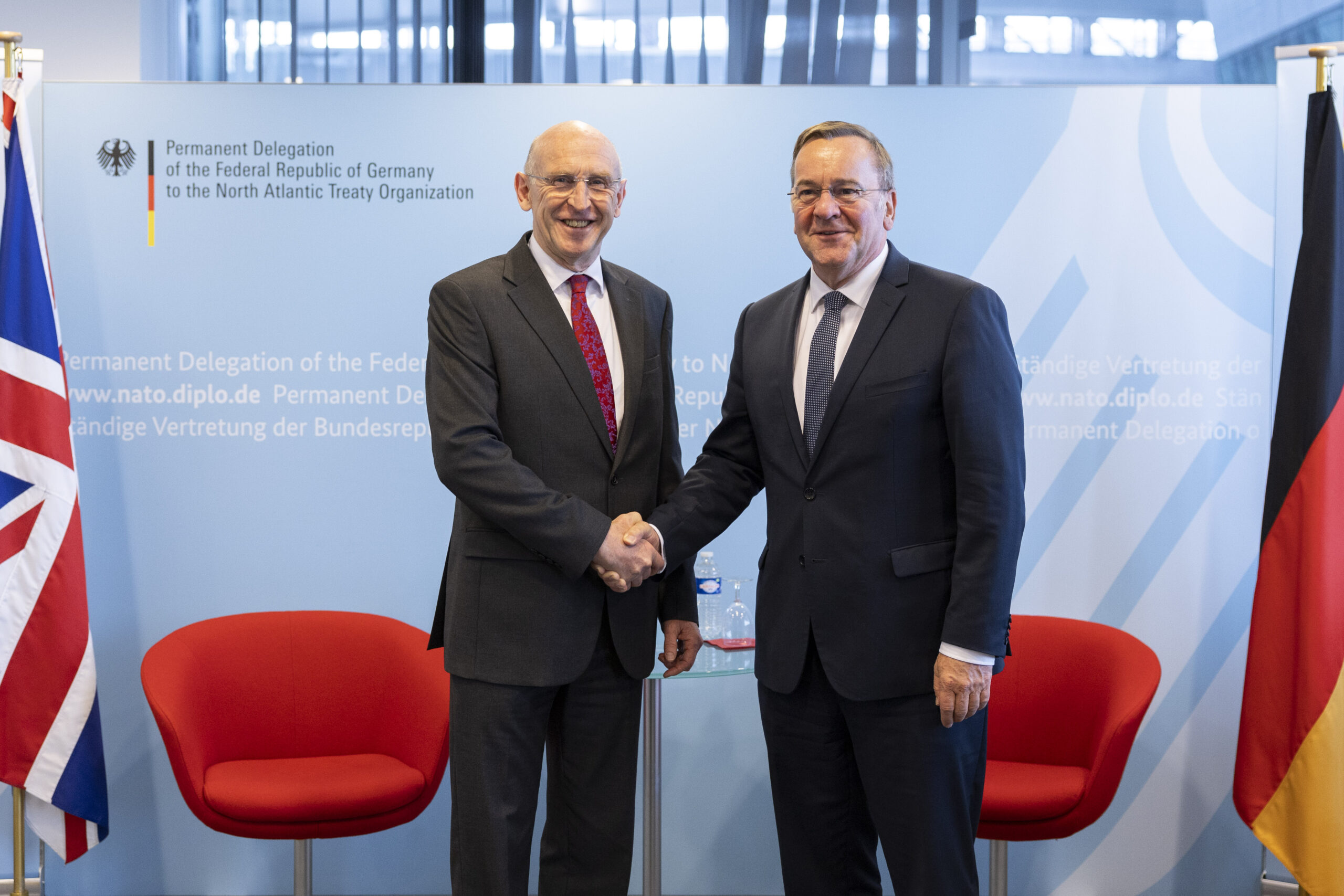
UK and Germany sign landmark, wide-ranging defence agreement
Peter Felstead
The United Kingdom and Germany have signed a landmark defence agreement – the first of its kind between the two countries – that will see the joint development of deep strike weapons, German maritime patrol aircraft (MPAs) operating from Scotland and the production of large-calibre gun barrels returning to the UK.
Known as the Trinity House Agreement, the accord was signed in London on 23 October by UK Defence Secretary John Healey and German Defence Minister Boris Pistorius.
In a press release the same day the UK Ministry of Defence said the agreement “marks a fundamental shift in the UK’s relations with Germany and for European security”, adding, “This agreement between Europe’s two biggest defence spenders will strengthen national security and economic growth in the face of growing Russian aggression and increasing threats.”
The deal will see the UK and Germany work together systemically for years to come on a range of ground-breaking defence projects and across all domains (air, land, sea, space and cyber). This includes working jointly to rapidly develop brand-new extended deep strike weapons that can travel further with more precision than current systems, which include the Anglo-French Storm Shadow air-launched cruise missile, which is known to have a range in excess of 550 km, and the German Taurus KEPD 350, which has a range of around 500 km.
The agreement will also see German Boeing P-8A Poseidon MPAs periodically operating out of RAF Lossiemouth in Scotland, where the Royal Air Force’s nine-strong Poseidon force is based, to help protect the North Atlantic amid Russian submarine activity. Germany initially ordered five P-8As in 2021 and then another three in 2023, although deliveries of these aircraft will only begin next year.
On the land side the Trinity House Agreement will see Germany’s Rheinmetall invest in a new large-calibre gun manufacturing facility in the UK in collaboration with Sheffield Forgemasters, thus reinstating large gun barrel manufacturing in the UK after a hiatus of more than 20 years. The UK lost its ability to make large-calibre gun barrels for Challenger 2 tanks and AS90 self-propelled howitzers with the closure of Royal Ordnance Factory (ROF) Nottingham in 2001.
The two nations’ defence industries will move closer than ever in other ways, including a long-term commitment to manufacturing Boxer multi-role armoured vehicles in the UK. Boxers are currently produced in Telford through Rheinmetall BAE Systems Land (RBSL) and in Stockport through the UK arm of Germany’s KNDS, but this is currently to fulfil UK orders for the vehicle.
Other initiatives under the Trinity House Agreement include:
- New co-operation to strengthen NATO’s Russia-facing front, with the two countries’ armies training and exercising more together and developing new ways of fighting’
- Collaboration on unmanned ground vehicles;
- Working jointly to protect critical underwater infrastructure such as vital cables on the seabed under the North Sea. This includes exploring new offboard undersea surveillance capabilities to improve detection of adversary activity;
- Working towards new unmanned combat air vehicles that could operate alongside British and German fighters;
- Exploration and development of new maritime uncrewed aerial systems;
- New support for Ukraine, including new joint work to enable German Sea King helicopters to be armed with modern missile systems as well as work on capability coalitions;
- Joint work with partners to integrate air defence systems to better protect European airspace against the threat of long-range missiles, building on work agreed at the NATO Defence Ministers meeting in mid-October 2024.
The Trinity House Agreement was signed less than 100 days after the UK defence secretary visited Berlin to kick off negotiations in July 2024 and is the first pillar in a wider UK-German treaty pledged by UK Prime Minister Keir Starmer and German Chancellor Olaf Scholz in August 2024.
Healey stated of the agreement that it “secures unprecedented levels of new co-operation with the German armed forces and industry, bringing benefits to our shared security and prosperity, protecting our shared values and boosting our defence industrial bases.
“This landmark agreement delivers on the government’s manifesto commitment to strike a new defence relationship with Germany – less than four months since winning the election in July – and we will build on this new co-operation in the months and years ahead,” he added.
Germany’s Pistorius stated, “The UK and Germany are moving closer together. With projects across the air, land, sea, and cyber domains, we will jointly increase our defence capabilities, thereby strengthening the European pillar within NATO. We can only strengthen our ability to act together. This is why our co-operation projects are open to other partners.
“We must not take security in Europe for granted,” he added. “Russia is waging war against Ukraine, it is increasing its weapons production immensely and has repeatedly launched hybrid attacks on our partners in Eastern Europe.
“With the Trinity House Agreement, we are showing that the NATO allies have recognised what these times require and are determined to improve their deterrence and defence capabilities,” Pistorius concluded. “As it lays the foundation for future projects, the Trinity House Agreement is an important contribution to this. It is particularly important to me that we co-operate even more closely to strengthen NATO’s eastern flank and to close critical capability gaps, for instance in the field of long-range strike weapons.”
